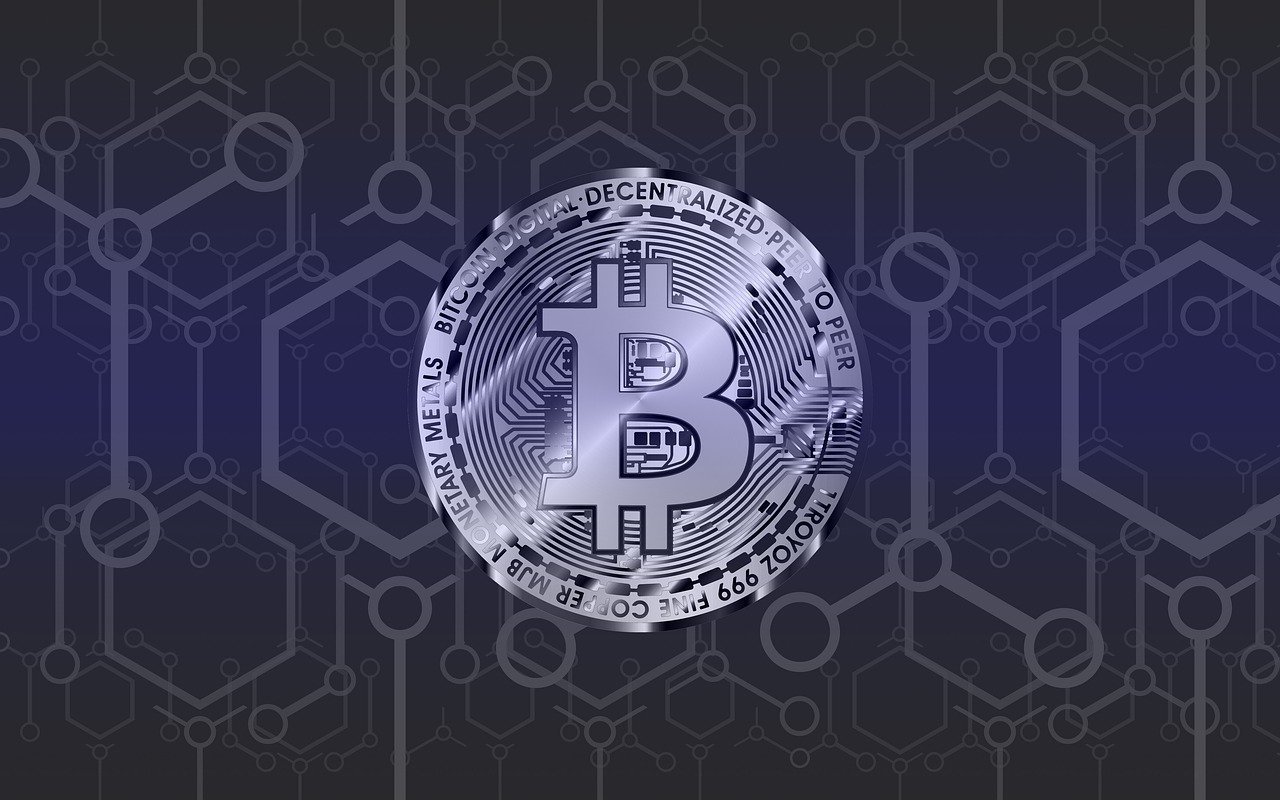https://internet.archive.org/internet/20180121071329/https://books.google.com.au/books
https://www.ft.com/content material/f30ece62-0f1c-492a-8ccd-63ec9730573c
https://ieeexplore.ieee.org/doc/8123011
https://ui.adsabs.harvard.edu/abs/2018NatSu…1..711K
https://arxiv.org/abs/1804.10013
https://weblog.chainalysis.com/stories/2022-biggest-year-ever-for-crypto-hacking/

Bitcoin, the primary cryptocurrency, has captured the eye of buyers, know-how fans, and monetary establishments worldwide. With its decentralized nature and revolutionary know-how, Bitcoin has emerged as a digital foreign money that guarantees to remodel the best way we understand cash and monetary transactions. On this weblog, we are going to delve into the genesis of Bitcoin, unravel its structure, discover its financial implications, look at the authorized elements, and analyze its influence on the worldwide economic system. Be a part of us on this journey as we discover the intricacies of Bitcoin foreign money, the way it works, and the worth it holds in at present’s digital world.
The Genesis of Bitcoin
Bitcoin, being the primary cryptocurrency, holds an intriguing origin story. It was launched in 2008, by way of a white paper titled “Bitcoin: A Peer-to-Peer Digital Money System,” by an nameless individual or group of individuals utilizing the pseudonym Satoshi Nakamoto. This white paper outlined the rules of a decentralized digital money system, which allowed people to transact instantly with out the necessity for a government or trusted third get together. The discharge of this white paper marked the beginning of Bitcoin, setting in movement a brand new period of digital currencies and decentralized monetary techniques.
The Ideological Roots of Bitcoin
Bitcoin’s emergence may be traced again to a dissatisfaction with conventional monetary techniques, significantly central banks and authorities management over cash. Satoshi Nakamoto, the mysterious creator of Bitcoin, envisioned a type of foreign money that will function exterior of the traditional banking system, free from central authority. The white paper served as a manifesto, outlining the imaginative and prescient of an digital money system that will allow peer-to-peer transactions, chopping out intermediaries and empowering people to take management of their funds.
Bitcoin’s ideology is rooted in ideas corresponding to monetary freedom, privateness, and transparency. Advocates of Bitcoin imagine that people ought to have the proper to retailer and switch worth with out counting on banks or governments. The decentralized nature of Bitcoin ensures that no single entity has management over the community, making it immune to censorship and manipulation.
The white paper launched cryptographic strategies that offered a safe and clear system of digital transactions. By using cryptographic proof, transactions on the Bitcoin community may be verified, guaranteeing the integrity of the system. This know-how, mixed with the decentralized blockchain ledger, grew to become the muse for Bitcoin, enabling safe and clear transactions with out the necessity for a trusted third get together.
The Emergence and Early Progress
As the primary cryptocurrency, Bitcoin encountered skepticism and curiosity in its early days. Tech fans and cypherpunks, who valued privateness and know-how, have been among the many first to embrace Bitcoin. It gained preliminary traction inside on-line communities, the place customers embraced its potential for on-line funds and monetary sovereignty.
Bitcoin’s first notable industrial transaction came about in 2010 when Laszlo Hanyecz famously bought two pizzas for 10,000 bitcoins. This transaction, whereas seemingly insignificant on the time, marked an vital milestone in Bitcoin’s journey, highlighting its potential as a medium of alternate.
Bitcoin’s worth and recognition grew steadily, attracting the eye of mainstream media, monetary establishments, and buyers. In 2013, The New York Occasions revealed an article, recognizing Bitcoin as a brand new type of digital foreign money difficult conventional monetary norms. This elevated visibility sparked curiosity and funding, resulting in a surge in Bitcoin’s worth and broader adoption.
Bitcoin’s decentralized nature and restricted provide, with a most cap of 21 million bitcoins, contributed to its attract. Not like conventional currencies, that are topic to inflation and manipulation by central banks, Bitcoin’s shortage and finite provide gave it an extra retailer of worth, attracting buyers searching for an alternate funding asset.
Unraveling the Structure of Bitcoin
Now that we’ve got explored the genesis of Bitcoin, allow us to delve deeper into its structure to know the way it operates. On the core of this digital foreign money is the blockchain, a revolutionary know-how that underpins the complete Bitcoin community. Via a distributed ledger system, Bitcoin transactions are recorded and verified, guaranteeing transparency, safety, and decentralized management. Moreover, nodes play a vital position within the community by validating transactions and sustaining the integrity of the system. Lastly, mining, a course of involving specialised {hardware} and computational energy, secures the community and provides new transactions to the blockchain.
Understanding the Blockchain
The blockchain is the technological spine of Bitcoin and different cryptocurrencies. It’s a decentralized ledger that data all transactions in a clear and immutable method. As a substitute of counting on a government, the blockchain operates on a distributed community of computer systems, or nodes, which work collectively to validate, report, and safe transactions.
Every transaction on the blockchain is grouped right into a block, which is then linked to the earlier block, forming a series of transaction historical past. This decentralized system of transaction recording ensures that no single entity has management over the community, making it immune to tampering or manipulation.
When a brand new block of transactions is created, community nodes compete to resolve complicated mathematical puzzles, generally known as proof-of-work. The primary node to resolve the puzzle receives a reward within the type of newly minted bitcoins, in addition to any transaction charges related to the block. This course of, generally known as mining, secures the community and provides new transactions to the blockchain, guaranteeing the authenticity and integrity of the ledger.
The blockchain’s distributed ledger system brings a number of benefits to Bitcoin and different cryptocurrencies. Firstly, it eliminates the necessity for a trusted third get together, corresponding to a financial institution, to facilitate transactions. As a substitute, transactions are verified and recorded by community nodes, guaranteeing transparency and safety. Secondly, the decentralized nature of the blockchain makes it extra resilient to assaults, as there isn’t a single level of failure. Lastly, the blockchain’s immutability ensures that when a transaction is recorded, it can’t be altered or deleted, offering a clear and auditable report of all transactions.
The Position of Nodes
Nodes play an important position within the Bitcoin community, serving because the spine of transaction verification and community upkeep. These community contributors, which may be people or organizations, validate, broadcast, and retailer copies of the blockchain ledger.
Full nodes retailer a whole copy of the blockchain and independently confirm every transaction. By doing so, they contribute to the community’s decentralization, guaranteeing that no single entity can management or manipulate the transaction historical past.
Moreover, nodes act as intermediaries for transactions, broadcasting them throughout the community, and permitting different nodes to validate and report them. This decentralized system removes the necessity for a trusted third get together, corresponding to a financial institution, to facilitate funds, making Bitcoin a peer-to-peer cost system.
Working a node contributes to the robustness and integrity of the Bitcoin community. The extra nodes there are, the safer and decentralized the community turns into. Nevertheless, changing into a node operator requires technical data, {hardware} sources, and bandwidth, which limits the variety of contributors operating full nodes.
Along with validating transactions, nodes implement community consensus guidelines. These guidelines make sure that all nodes within the community agree on the validity of transactions and block creation. By adhering to those consensus guidelines, nodes preserve the integrity of the system, stopping fraudulent or malicious actions throughout the Bitcoin community.
The Idea of Mining in Bitcoin
Bitcoin mining is the method of including new transactions to the blockchain and securing the community by way of computational work. Miners use specialised {hardware}, generally known as mining rigs, to resolve complicated mathematical puzzles, offering proof of labor. This proof-of-work mechanism ensures the integrity of the community, stopping spam and fraud, whereas additionally distributing new bitcoins into circulation.
To mine Bitcoin, miners collect transactions into blocks, arrange them utilizing cryptographic strategies, and try and discover a answer to a mathematical downside. This downside requires vital computational energy to resolve, making it resource-intensive. Miners compete with one another, and the primary miner to seek out the proper answer broadcasts it to the community, claiming the reward for fixing the puzzle.
As mining has turn into extra aggressive over time, particular person miners usually pool their sources collectively, forming mining swimming pools. By pooling their computational energy, miners enhance their possibilities of discovering the proper answer, they usually share the rewards proportionally to their contributions. This pooling of sources makes mining extra accessible to a wider vary of contributors, as mining individually may be prohibitively costly and time-consuming.
As soon as a miner efficiently finds the answer, a brand new block of transactions is added to the blockchain, and the miner receives a reward within the type of newly minted bitcoins. The reward serves as an incentive for miners to dedicate their sources to safe the community and validate transactions.
The mining course of additionally performs a vital position in regulating the creation of recent bitcoins. The Bitcoin protocol adjusts the problem of the mining puzzles based mostly on the entire computational energy of the community. This adjustment maintains a constant block creation charge of roughly one block each 10 minutes, guaranteeing a managed and predictable issuance of recent bitcoins.
Along with securing the community and minting new bitcoins, mining additionally performs an integral position within the decentralized governance of Bitcoin. Miners, by way of their computational energy, can assist or oppose proposed protocol adjustments, offering a type of decentralized decision-making throughout the community.
The Economics of Bitcoin
Now that we’ve got explored the structure of Bitcoin, allow us to dive into the financial elements of this digital foreign money. Bitcoin’s distinctive properties and decentralized nature give rise to numerous financial implications, together with transaction charges, the position of exchanges, and the value developments and volatility of Bitcoin. Understanding these financial elements is crucial for comprehending the worth and potential of Bitcoin in at present’s monetary panorama.
The Mechanism of Transaction Charges
Transaction charges type an integral a part of the Bitcoin ecosystem. When customers provoke transactions, they’ve the choice to incorporate transaction charges to incentivize miners to prioritize their transactions. Miners, who validate transactions and add them to the blockchain, usually tend to embrace transactions with increased charges, because it will increase their income.
Transaction charges serve a number of functions throughout the Bitcoin community. Firstly, they contribute to the safety of the community, as miners are motivated to incorporate transactions with increased charges, guaranteeing that transactions are processed promptly. Secondly, transaction charges present an financial incentive for miners, encouraging them to dedicate their computational sources to safe the community. Lastly, transaction charges act as a market mechanism, allocating community sources based mostly on provide and demand. When community congestion is excessive, customers might select to pay increased charges to have their transactions processed rapidly.
The quantity of transaction charges depends upon numerous elements, together with the transaction measurement, community congestion, and the urgency of the transaction. Customers can select to regulate their transaction charges accordingly, balancing the pace of transaction affirmation with cost-effectiveness.
Transaction charges, mixed with block rewards, type the monetary incentive system that helps the mining of recent bitcoins and the safety of the community. Because the block reward decreases over time, transaction charges are anticipated to play an more and more vital position in sustaining mining operations. This transition is seen as a key mechanism for the long-term viability of Bitcoin, offering miners with monetary incentives even after the entire provide of Bitcoin is absolutely minted.
The introduction of transaction charges has additionally spurred the event of economic services and products throughout the Bitcoin ecosystem. Corporations have emerged that present payment estimation providers, enabling customers to calculate optimum transaction charges based mostly on community situations. Moreover, wallets, exchanges, and cost processors provide instruments and options that permit customers to regulate transaction charges in accordance with their preferences and urgency.
The Position of Exchanges in Bitcoin Buying and selling
Cryptocurrency exchanges play an important position within the shopping for, promoting, and buying and selling of Bitcoin and different digital property. These on-line platforms function intermediaries, offering customers with a market to alternate, retailer, and handle their cryptocurrencies.
Bitcoin exchanges facilitate the conversion of fiat foreign money, such because the US greenback, into Bitcoin and vice versa. People and establishments can use these alternate platforms to enter or exit the cryptocurrency market, creating liquidity and market effectivity.
Exchanges additionally provide pockets providers, permitting customers to retailer their bitcoin securely. Cryptocurrency wallets present customers with a singular cryptographic handle, which serves as their digital identification on the blockchain. By storing their Bitcoin in wallets, customers retain management of their non-public keys, guaranteeing the safety of their digital property.
The position of exchanges extends past facilitating transactions. Additionally they play a vital position in value discovery, as costs on exchanges are influenced by market demand and provide. The aggregated buying and selling exercise on exchanges contributes to the dedication of market costs, making a clear marketplace for bitcoin.
Market capitalization, a metric used to measure the worth of a cryptocurrency, is intently tied to exchanges. It’s calculated by multiplying the entire provide of Bitcoin by its market value. The liquidity and buying and selling quantity on exchanges contributes to market capitalization, reflecting the worth and investor sentiment in the direction of bitcoin.
Whereas exchanges present comfort and accessibility, in addition they introduce dangers. Safety measures, corresponding to two-factor authentication, chilly storage wallets, and insurance coverage, are important for safeguarding person funds. Regulatory compliance and adherence to anti-money laundering (AML) and know-your-customer (KYC) laws are additionally essential for exchanges to function inside authorized frameworks.
Understanding the Worth Developments and Volatility
Bitcoin costs have exhibited vital volatility since its inception, making it a topic of fascination and curiosity for buyers, merchants, and analysts. Understanding the elements driving Bitcoin’s value developments is crucial for these inquisitive about its worth proposition and potential as a digital asset.
Bitcoin’s decentralized nature, restricted provide, and rising adoption have contributed to its worth appreciation over time. As demand for Bitcoin will increase, pushed by elements corresponding to market hypothesis, capital flight, or monetary uncertainty, its market value tends to rise. Conversely, when market sentiment turns bearish or regulatory challenges come up, bitcoin costs can expertise sharp declines.
The market capitalization of Bitcoin, a measure of its whole worth, additionally influences its value developments. As market capitalization will increase, it attracts extra consideration from buyers, establishments, and most people, driving up demand. Nevertheless, the comparatively small market measurement of Bitcoin in comparison with conventional monetary markets introduces the potential for increased value volatility.
Bitcoin’s value historical past has been marked by each bull and bear cycles. Durations of speedy value appreciation, characterised by market exuberance and speculative shopping for, have usually been adopted by corrections, resulting in market consolidations or value declines. These boom-and-bust cycles resemble speculative bubbles, paying homage to comparable patterns noticed in historic monetary markets.
Analogies are sometimes drawn between bitcoin and conventional property, corresponding to shares or commodities, to know its value actions. Nevertheless, bitcoin’s distinctive attributes, together with its decentralized nature, restricted provide, and rising adoption curve, make it a particular asset class, topic to its personal set of market dynamics and regulatory concerns.
Analyzing Bitcoin’s value developments requires a mix of technical and basic evaluation, incorporating market sentiment, macroeconomic elements, regulatory developments, and investor habits. Whereas bitcoin’s volatility presents dangers, it additionally presents alternatives for merchants and buyers searching for short-term beneficial properties or long-term worth propositions in a digital asset with potential retailer of worth traits.
The Authorized Features of Bitcoin
Bitcoin operates inside a fancy authorized panorama, as governments and regulatory our bodies world wide grapple with defining its authorized standing, taxation, and potential influence on the worldwide monetary system. On this part, we are going to discover the authorized elements of Bitcoin, together with its standing as authorized tender, taxation implications, and the challenges related to working inside a world economic system.
Bitcoin’s Legality in Varied Areas
Bitcoin’s authorized standing varies throughout completely different nations, with some embracing it as a respectable type of cost, whereas others stay cautious or impose restrictions. The designation of authorized tender, which grants a type of foreign money authorized standing for the settlement of money owed, differs from nation to nation.
In 2021, El Salvador grew to become the primary nation to undertake Bitcoin as a authorized tender, permitting it for use for numerous transactions, together with cost of taxes, salaries, and items and providers. This historic transfer by El Salvador has sparked a world dialogue, with different nations intently monitoring its implementation.
In distinction, some nations, such because the Central African Republic, have explicitly banned Bitcoin and digital currencies, citing considerations associated to cash laundering, shopper safety, and monetary stability. These prohibitions intention to safeguard their home monetary techniques and stop the potential misuse of digital currencies in felony actions.
For a lot of nations, the authorized standing of bitcoin falls right into a grey space, topic to evolving regulatory frameworks and interpretations. Governments acknowledge the necessity to strike a stability between fostering innovation and defending customers, buyers, and nationwide monetary techniques. As Bitcoin’s adoption continues to develop, authorized frameworks will probably adapt, offering readability and addressing potential dangers related to digital currencies.
Understanding Bitcoin and Tax Standing
The usage of Bitcoin raises vital concerns relating to taxation, as governments search to make sure compliance and incorporate digital currencies into their present frameworks. The tax standing of bitcoin depends upon native legal guidelines and laws, which might range broadly.
Positive aspects realized from bitcoin transactions, corresponding to shopping for, promoting, or exchanging, could also be topic to capital beneficial properties tax in lots of jurisdictions. These capital beneficial properties are sometimes categorized as short-term or long-term, relying on the holding interval of the bitcoin.
Tax authorities are more and more specializing in cryptocurrency beneficial properties, requiring people to report bitcoin-related revenue. Regulators intention to stop tax evasion and guarantee a good taxation system by together with digital property in reporting obligations.
For companies, accepting Bitcoin as cost introduces extra concerns. Recording and accounting for Bitcoin transactions, valuing Bitcoin funds, and complying with tax obligations are essential for authorized and monetary compliance.
The tax therapy of bitcoin, together with laws round capital beneficial properties, deductions, and reporting necessities, can range drastically between jurisdictions. Subsequently, people and companies ought to search skilled steering to navigate the complexities of Bitcoin taxation and stay compliant with native legal guidelines.
Addressing Authorized Considerations in a World Economic system
Bitcoin’s borderless nature and decentralized construction increase authorized considerations in a world economic system. Regulators, monetary establishments, and regulation enforcement companies face challenges in addressing potential cash laundering, terrorism financing, and different unlawful actions related to digital currencies.
Whereas bitcoin transactions are inherently clear, with each transaction recorded on the blockchain, the pseudonymous nature of contributors makes the tracing of illicit actions difficult. The usage of cryptocurrency mixers, tumblers, or privateness cash poses extra hurdles for regulation enforcement companies, as they obfuscate transaction trails.
Addressing authorized considerations surrounding Bitcoin requires worldwide cooperation and the event of strong insurance policies and frameworks that strike a stability between monetary innovation, safety, and shopper safety. These frameworks ought to promote accountable use of digital currencies, streamline regulatory and compliance processes, and foster collaboration between the private and non-private sectors.
As know-how evolves, so do the strategies utilized by criminals. Subsequently, regulatory efforts should be adaptable, retaining tempo with the ever-changing panorama of digital currencies, whereas avoiding stifling innovation and legit use circumstances of cryptocurrency know-how.
The digital foreign money ecosystem, together with Bitcoin, has taken steps towards self-regulation and elevated transparency. Crypto exchanges are more and more adopting strict Know Your Buyer (KYC) and Anti-Cash Laundering (AML) procedures, offering helpful data for regulation enforcement and regulatory companies.
Efforts by regulatory our bodies, monetary establishments, and know-how suppliers to develop finest practices, requirements, and business tips are important in making a safe and trusted setting for digital foreign money transactions in a world economic system.
The Impression and Evaluation of Bitcoin Utilization
Bitcoin’s rising utilization and affect have had profound results on numerous sides of the monetary world. On this part, we are going to discover Bitcoin’s influence on conventional banking, its environmental implications, and whether or not cryptocurrencies have the potential to turn into the way forward for international transactions.
The Affect of Bitcoin on Banks
Bitcoin, with its decentralized nature, challenges the standard position of banks as central authorities in monetary transactions. As people embrace Bitcoin and cryptocurrencies, they acquire better management over their monetary property, bypassing the necessity for intermediaries like banks.
Monetary establishments are more and more exploring blockchain know-how, the underlying know-how of Bitcoin, to streamline their cost techniques and improve safety and effectivity. By adopting distributed ledger know-how, monetary establishments intention to enhance cross-border funds, scale back transaction prices, and improve transparency.
Nevertheless, bitcoin’s rise additionally poses competitors to conventional banking providers, because it presents an alternate type of cost and retailer of worth. With Bitcoin, people can ship and obtain funds instantly, with out counting on conventional cost networks or monetary establishments. This disintermediation of banking providers challenges the established order, prompting monetary establishments to adapt and innovate in response to altering shopper preferences.
The affect of Bitcoin compels banks and monetary establishments to rethink their enterprise fashions and discover partnerships with cryptocurrency exchanges, cryptocurrency wallets, and different digital asset service suppliers. Collaboration between conventional monetary establishments and digital foreign money corporations opens new avenues for monetary merchandise, providers, and market entry, nurturing better monetary inclusion and international connectivity.
Evaluating the Environmental Results of Bitcoin Mining
Bitcoin mining, whereas integral to the community’s safety, has raised considerations relating to its environmental influence. The energy-intensive nature of mining, coupled with the rising computational energy required, has led to debates in regards to the sustainability of Bitcoin.
- The environmental results of bitcoin mining have attracted vital consideration from researchers, policymakers, and environmental activists.
- The sustainability of bitcoin mining depends on the power sources used, as conventional power sources contribute to carbon emissions, whereas renewable power sources provide a greener various.
- The consumption of power by bitcoin mining actions has led to comparisons with the power consumption of total nations, corresponding to Argentina or the Netherlands.
- The College of Cambridge’s Centre for Various Finance estimates that the majority bitcoin mining actions are powered by renewable power sources, corresponding to hydroelectric, wind, or solar energy.
- The evolving panorama of bitcoin mining, together with the event of extra energy-efficient applied sciences and the rising use of renewable power sources, offers alternatives for mitigating the environmental results.
Are Cryptocurrencies the Way forward for World Transactions?
Cryptocurrencies, together with Bitcoin, have the potential to revolutionize international transactions, providing quick, safe, and decentralized alternate options to conventional cost techniques. Whereas the widespread adoption of cryptocurrencies in each day transactions remains to be in its early levels, the next elements contribute to their promise as the way forward for monetary transactions.
Cryptocurrencies present an environment friendly technique of cross-border transactions, eliminating the complexities and costs related to conventional banking techniques. With Bitcoin, people can ship cash anyplace on the planet, bypassing intermediaries, and benefiting from quicker settlement occasions.
The underlying know-how of cryptocurrencies, blockchain, presents decentralized, safe, and clear transaction recording. Good contracts, self-executing contracts written on the blockchain, get rid of the necessity for intermediaries, streamline negotiations, and automate contractual obligations.
The expansion of decentralized finance (DeFi) purposes, constructed on blockchain know-how, permits monetary transactions with out intermediaries, offering new alternatives for digital lending, decentralized exchanges, and monetary merchandise.
Cryptocurrencies additionally present entry to monetary providers for the unbanked and underbanked populations, who might not have entry to conventional banking infrastructure. By utilizing digital wallets, people can retailer, ship, and obtain cryptocurrencies, bridging gaps in monetary inclusion.
Whereas Bitcoin and cryptocurrencies current thrilling alternatives, challenges stay, together with regulatory frameworks, scalability, privateness, and monetary stability. Addressing these challenges will probably be essential to realizing the total potential of cryptocurrencies in a world transaction panorama.
Conclusion
In conclusion, Bitcoin has revolutionized the world of finance and transactions. Its decentralized nature and using blockchain know-how have made it a safe and clear type of foreign money. The rise of Bitcoin has sparked debate and hypothesis about its true worth and prospects. Whereas it has confronted challenges and criticism, its reputation and acceptance proceed to develop. As we transfer ahead, it is going to be fascinating to see how Bitcoin evolves and whether or not it turns into a mainstream type of cost. Whether or not you select to put money into Bitcoin or not, it is very important keep knowledgeable and perceive the implications of this digital foreign money on the worldwide economic system.




